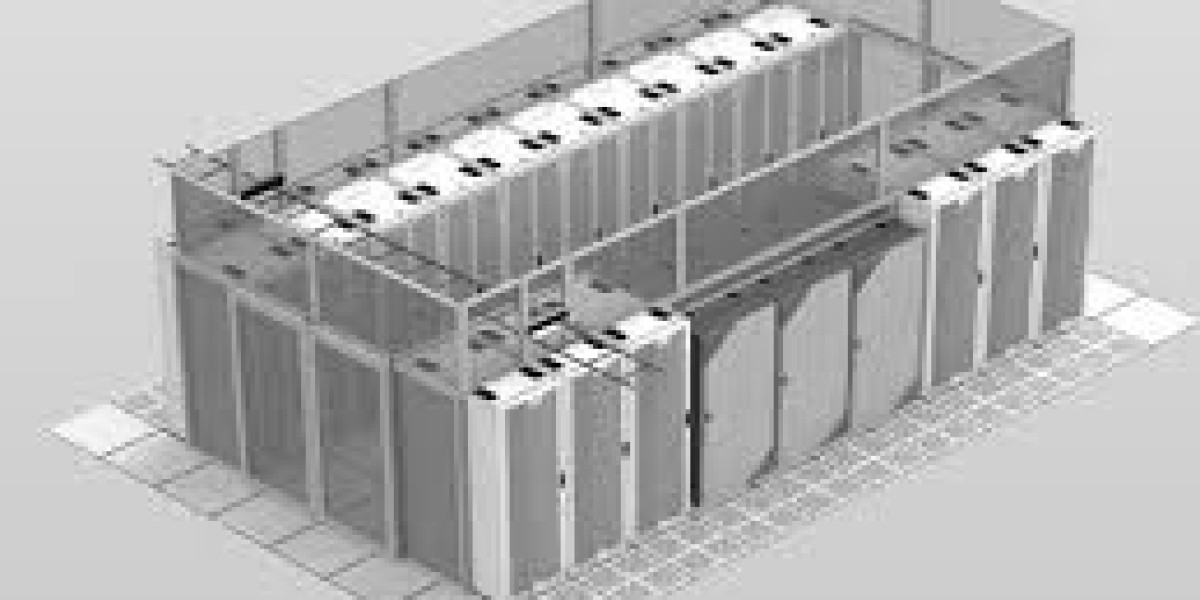In today's data-driven world, data centres are the backbone of digital operations—and efficient cooling is critical to their performance. As server density increases, so does the heat load. One of the most effective strategies to manage this heat without skyrocketing energy bills is hot aisle containment (HAC).
In this article, we’ll break down what hot aisle containment is, how it works, and why it’s rapidly becoming the gold standard in modern data centre design.
What is Hot Aisle Containment?
Hot aisle containment (HAC) is a cooling strategy used in data centres to isolate hot exhaust air from servers and prevent it from mixing with the cool air supplied to the front of the racks. By enclosing the hot aisle (the space where the rear of server racks face each other), this system allows for more precise control of airflow and temperatures.
The goal is simple: separate hot and cold air streams to increase cooling efficiency and reduce energy consumption.
How Hot Aisle Containment Works
In a typical data centre layout, server racks are arranged in alternating rows—cold aisle/hot aisle configuration. In a HAC setup:
The hot aisle is physically enclosed using doors, ceiling panels, or ducting.
Hot air from servers is captured and directed toward the cooling units (CRAC or CRAH).
Meanwhile, cold air flows unobstructed into the front of the servers via cold aisles.
By preventing the hot and cold air from mixing, the cooling system operates more efficiently, delivering lower PUE (Power Usage Effectiveness) and better temperature stability.
Benefits of Hot Aisle Containment
1. Enhanced Cooling Efficiency
HAC enables precise temperature control and eliminates hotspots, allowing cooling systems to run at higher temperatures and lower fan speeds.
2. Lower Energy Costs
By improving airflow management, data centres can reduce cooling-related energy consumption—often achieving up to 30% energy savings.
3. Improved Equipment Lifespan
Stable temperatures reduce wear and tear on IT hardware, leading to fewer failures and extended equipment life.
4. Higher Rack Density
With better cooling control, data centres can safely increase rack density without risk of overheating, supporting business growth and future scalability.
5. Environmental Sustainability
Less energy use = reduced carbon footprint. HAC supports green data centre initiatives and can contribute to LEED or BCA Green Mark certifications (especially in Singapore).
Hot Aisle vs. Cold Aisle Containment
| Feature | Hot Aisle Containment | Cold Aisle Containment |
|---|---|---|
| Enclosed Area | Hot aisle (rear of servers) | Cold aisle (front of servers) |
| Air Handling Focus | Captures and isolates exhaust air | Contains cold supply air |
| Efficiency | Generally more efficient in large setups | Effective in smaller or retrofit spaces |
| Popularity | Preferred in modern, purpose-built DCs | Easier to implement in existing facilities |
Considerations for Implementing HAC
Data Centre Layout: Ensure consistent rack alignment and spacing.
Ceiling Height & Airflow Design: Plan for proper return air path to CRAC/CRAH.
Fire Suppression: Use fire-safe containment materials and integrate with suppression systems.
Security & Access: Doors and panels should allow for easy maintenance access.
Compliance: Adhere to local building codes and safety regulations.
Who Should Consider Hot Aisle Containment?
Large-scale enterprise data centres
Colocation facilities
Cloud service providers
Organisations planning high-density rack deployments
Operators looking to optimise energy usage and reduce cooling OPEX
Final Thoughts
As data centres face increasing demand for performance, efficiency, and sustainability, hot aisle containment offers a smart and future-proof solution. It’s not just about cooling—it's about creating a controlled, cost-effective, and reliable environment for mission-critical infrastructure.
Planning a data centre upgrade or build-out? Our experts can help you design and implement an optimised HAC system tailored to your facility’s unique needs. Contact us today for a site evaluation and customised airflow management solution.








